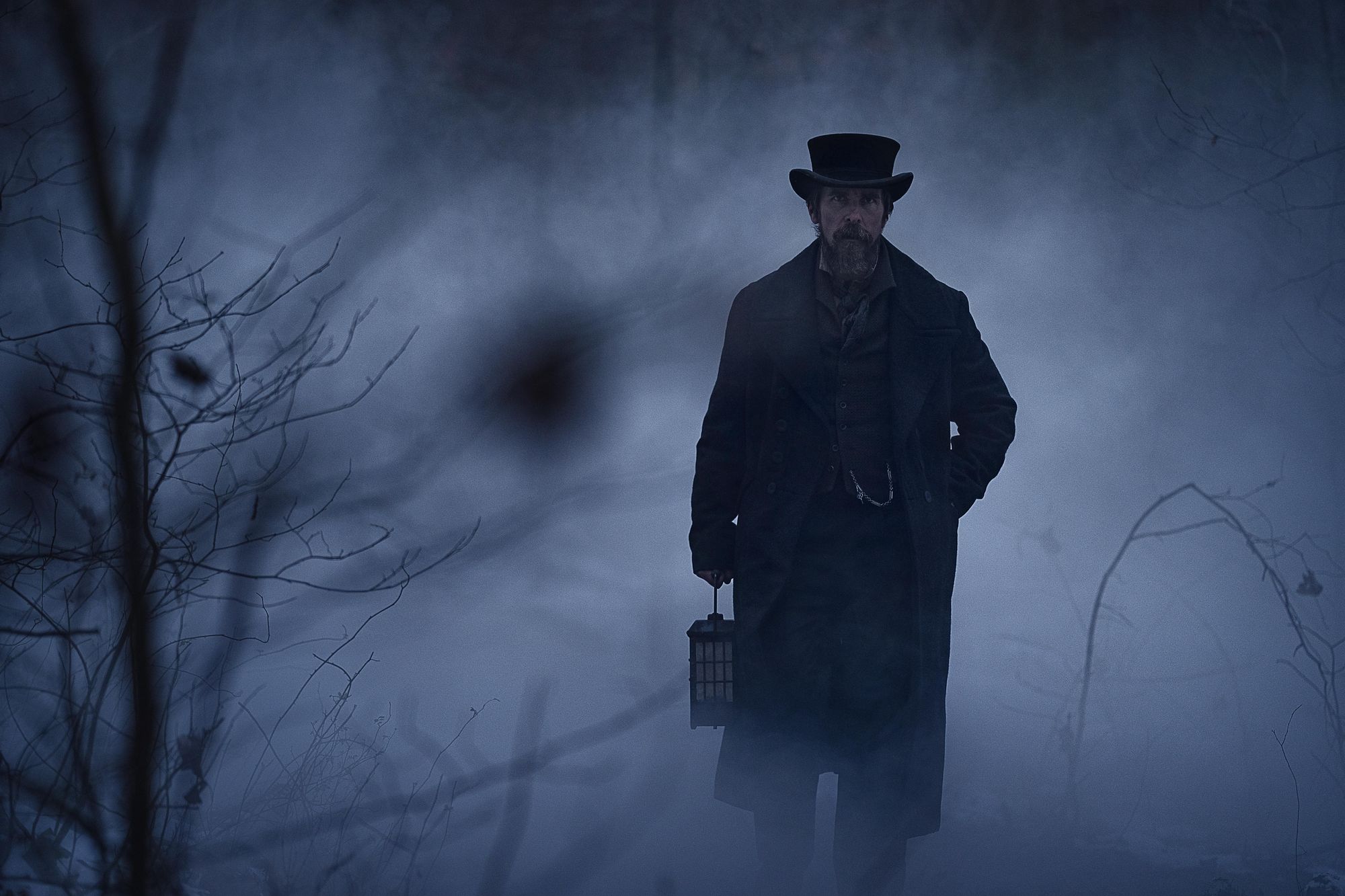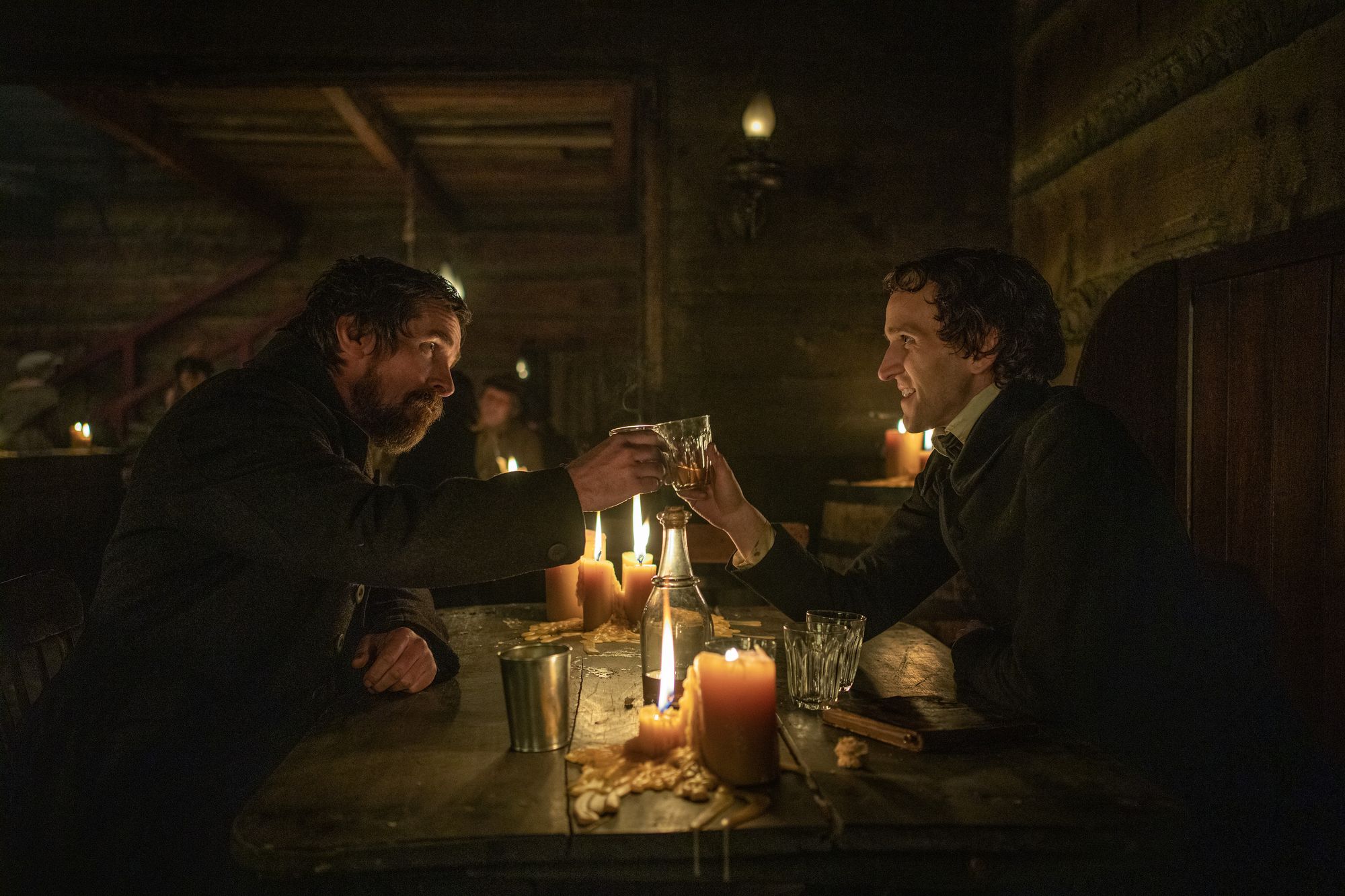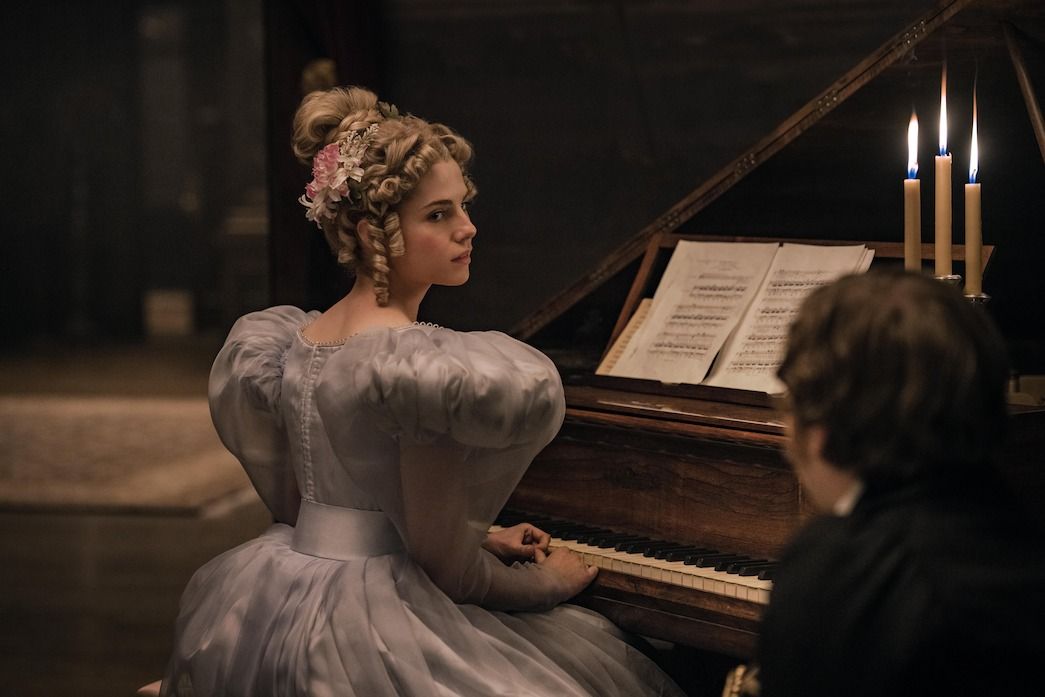By Charli Phillips, Third Year, English
Few films have ever suited their title better than Scott Cooper’s The Pale Blue Eye (2022). Any kind of vibrancy is missing from this film, and instead we are made witness to scene upon scene of grey melancholy. Even tonal inflection is often lost in the characters’ strong – and often questionable – southern accents. Despite this, the film’s concept shines, and, although it is often obscurely presented, the relationship between the two main characters, Edgar Allen Poe (Harry Melling) and Augustus Landor (Christian Bale), is a pleasure to watch.

The film follows Landor, an alcoholic whose daughter has gone missing, as he is brought into a cadet school to examine strange and graphic occurrences. A student has been found hanged and someone has cut out his heart, with the entire school being in question as suspects. Whilst trying to make sense of the crime, Landor befriends the troubled young cadet Edgar Allen Poe. The film is an adaptation of a book, of the same name, written by Louis Bayard and originally published in 2003.
Using Edgar Allen Poe as a character in the story is an interesting decision. Harry Melling’s performance is undoubtedly memorable, leaving any remnants of his Harry Potter days in his past. His performance equals that of Christian Bale’s and affirms him as a talented actor with years of potential ahead of him.

However, Melling is failed by the script. In attempting to secure Poe as different from the other characters, his lines are often random and unreasoned. His poetic nature is not a strong enough motive for his actions in the movie and so his inclusion feels more like a fun gimmick rather than an interesting aspect of the plot.
The relationship between Landor and Poe is one of the best aspects of the film though. Landor’s harsh exterior only ever wavers in his care for Poe and their bonding over loneliness is both heart-warming and heart-shattering. The unlikely friends bring into this dark cold film a sense of intimacy and love, which is a wonderful break from the bleakness the film otherwise upholds.
The relationship between Poe and Lea (Lucy Boynton), however, was underdeveloped and confusing. Of course, the relationship is meant to appear unhealthy and intense, however there is little foundation for any romantic relationship to seem plausible. The extent of their relationship is in briefly sharing morbid ideas and sometimes occupying the same space.

It is the last ten minutes of the film that make the previous two hours seem worth it. The wonderful revelations completely rewrite what we know about the film and is a fascinating exploration. It is in these ten minutes that Bale shows us why he is such an esteemed actor. My advice to anyone watching this film is to not give up, wait for the last ten minutes of the film and suddenly your entire experience will have changed.
The film follows two flawed characters living in a flawed script. However, Melling and Bale give performances to fight against these disadvantages, leaving the audience with a decent viewing experience. Just not a perfect one.
Featured image: by Scott Garfield/Netflix, courtesy of Netflix
Will you be watching Netflix's new gothic detective thriller?









